Pharmaceutical Plant

Pharmaceutical Plant
Pharmaceutical manufacturing is a complex process that demands precision and control at every step. The production of drugs in pharmaceutical plants can face numerous challenges, and one major hurdle is moisture control. Failing to manage moisture effectively can lead to various losses and problems in the production of drugs. In this application area webpage content, we will explore the significance of moisture control in pharmaceutical plants, and we will introduce you to the benefits of utilizing a desiccant dehumidifier, a key solution provided by Rehoboth, to tackle these issues.
Benefits of Controlling Moisture
with a Desiccant Dehumidifier
Rehoboth offers a solution to the moisture control challenges in pharmaceutical plants: the desiccant dehumidifier. Here are the benefits of using this technology:
01.Precise Moisture Control
• Desiccant dehumidifiers offer unparalleled precision in controlling humidity levels, ensuring that drugs remain in optimal conditions.
02.Improved Productivity
• With moisture-related problems minimized, pharmaceutical plants can operate smoothly, leading to enhanced productivity.
03.Energy Efficiency
• Rehoboth's desiccant dehumidifiers are energy-efficient, reducing operational costs.
04.Compliance with Regulatory Standards
• Our technology helps pharmaceutical plants meet and exceed regulatory moisture control standards.
05.Customization
• Our desiccant dehumidifiers can be tailored to suit the specific requirements of your pharmaceutical plant.
06.Minimal Maintenance
• Rehoboth's products are designed for low maintenance, minimizing downtime.
07.Reliable Support
• We offer dedicated support and service to ensure that your desiccant dehumidifier operates optimally.
Understanding the Importance
of Moisture Control
Moisture control is a critical aspect of pharmaceutical production, and it impacts the quality and safety of the drugs manufactured. Let's delve into why moisture control is vital in the production of drugs in pharmaceutical plants.
01.Product Stability and Efficacy:
• Moisture control is crucial in pharmaceutical manufacturing to ensure the stability and efficacy of the final product.
• Many pharmaceutical substances are sensitive to moisture, and variations in humidity levels can lead to degradation, impacting the quality and performance of the medication.
02.Prevention of Microbial Growth:
• Moist environments provide favorable conditions for microbial growth, posing a significant risk to pharmaceutical products.
• Controlling moisture throughout the manufacturing process helps prevent microbial contamination, ensuring the safety of the drugs produced.
03.Quality Assurance and Regulatory Compliance:
• Maintaining stringent moisture control aligns with quality assurance standards and regulatory requirements in the pharmaceutical industry.
• Regulatory agencies, such as the FDA, emphasize the importance of controlling environmental conditions, including moisture, to guarantee the reliability and consistency of pharmaceutical products.
04.Optimized Manufacturing Processes:
• Moisture control optimizes manufacturing processes by reducing the likelihood of clumping, caking, or sticking of powdered or granulated materials.
• Controlling moisture levels enhances the flow properties of materials, facilitating accurate dosing and improving overall efficiency in production.
05.Extended Shelf Life:
• Moisture plays a significant role in the degradation of pharmaceuticals over time.
• Effective moisture control extends the shelf life of products, ensuring that medications remain stable and potent throughout their intended duration.
06.Cost Reduction and Waste Prevention:
• Inadequate moisture control can lead to product spoilage, resulting in financial losses and increased waste.
• Implementing proper moisture control measures helps reduce the likelihood of product loss, contributing to cost savings and overall efficiency.
07.Worker Safety and Comfort:
• Consistent moisture control contributes to a comfortable and safe working environment for personnel within the pharmaceutical plant.
• Maintaining optimal humidity levels not only supports the quality of pharmaceuticals but also ensures the well-being of workers by preventing conditions that may lead to discomfort or health issues.
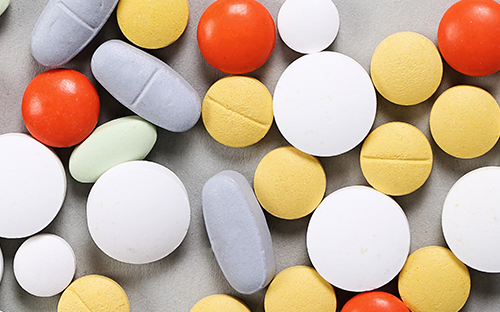
Tablet Production
In the world of pharmaceuticals, moisture control plays a pivotal role in ensuring the quality and safety of tablets. The production of tablets in a Pharmaceutical Plant can be riddled with challenges, primarily stemming from moisture-related issues.
Understanding the Problem:
The pharmaceutical industry is no stranger to losses and difficulties. Moisture-related problems can occur at various stages, such as raw material storage, granulation, compression, and packaging. These issues lead to defects, reduced shelf life, and, ultimately, financial setbacks. Inadequate moisture control can be attributed to fluctuating environmental conditions, poor storage practices, and equipment inefficiencies.
Benefits of Moisture Control:
Moisture control is a critical aspect of pharmaceutical production, and it impacts the quality and safety of the drugs manufactured. Let's delve into why moisture control is vital in the production of drugs in pharmaceutical plants.
01.Enhanced Product Quality:
Proper moisture control ensures uniform tablet hardness, dissolution rate, and content uniformity, vital for delivering the right dose.
02.Extended Shelf Life:
Moisture-controlled storage prevents degradation and extends the tablets' usability period.
03.Cost Savings:
Minimized losses and rejections lead to significant cost reductions.
04.Regulatory Compliance:
Meeting moisture control standards is essential to comply with pharmaceutical regulations.
Moisture control systems, like dehumidifiers, monitoring devices, and well-designed facilities, are the keys to success.
Effective moisture control is not just a technicality; it's a cornerstone of pharmaceutical tablet production. Embracing these practices will not only ensure high-quality tablets but also safeguard your investments and maintain your facility's reputation in the pharmaceutical industry.
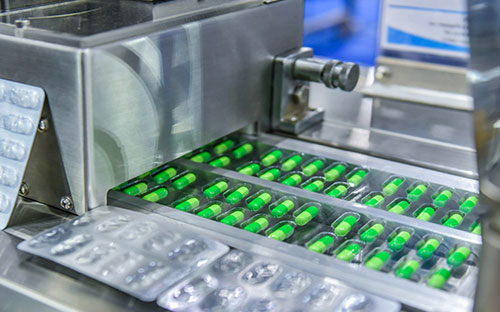
Capsule Production
In the world of pharmaceuticals, moisture control plays a pivotal role in ensuring the quality and safety of tablets. The production of tablets in a Pharmaceutical Plant can be riddled with challenges, primarily stemming from moisture-related issues.
Understanding the Problem:
Moisture-related issues can disrupt the entire production process. Excessive moisture can lead to clumping, clogging, and inconsistency in capsule quality. In contrast, insufficient moisture can result in brittle capsules that easily break, rendering them useless. The fluctuating humidity levels in pharmaceutical plants can exacerbate these challenges, making precise control even more essential.
To address these problems, it is vital to employ state-of-the-art moisture control systems. These systems help maintain the ideal moisture content throughout the production process, ensuring the capsules remain intact, consistent, and high in quality.
Benefits of Moisture Control:
Effective moisture control yields numerous benefits. First and foremost, it enhances the overall product quality, reducing losses and waste. Additionally, it streamlines production processes, saving both time and resources. Furthermore, maintaining the correct moisture levels ensures product consistency, ultimately leading to customer satisfaction and trust in your pharmaceutical brand.
Investing in moisture control solutions is not just a cost-effective measure; it's a necessity for pharmaceutical plant owners and maintenance personnel to meet quality standards and regulations.
Moisture control is an indispensable aspect of pharmaceutical capsule production in any pharmaceutical plant. By understanding the challenges posed by moisture and embracing advanced moisture control technology, you can enhance product quality, streamline processes, and ultimately thrive in the competitive pharmaceutical industry. We encourage you to explore and implement effective moisture control systems to overcome these production hurdles and secure the success of your pharmaceutical plant.
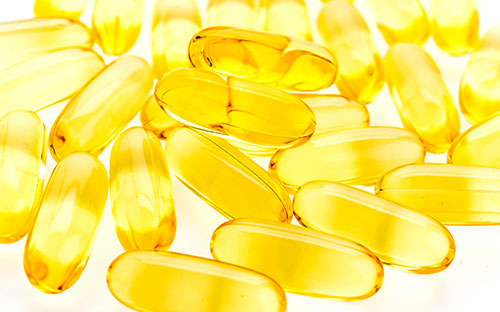
Soft Gel Capsule
In the world of pharmaceuticals, moisture control plays a pivotal role in ensuring the quality and safety of tablets. The production of tablets in a Pharmaceutical Plant can be riddled with challenges, primarily stemming from moisture-related issues.
Understanding the Problem:
Moisture control is pivotal in pharmaceutical manufacturing, as it affects the quality and efficacy of Soft Gel Capsules. Excessive moisture can lead to a range of issues, such as capsule deformities, instability of active ingredients, and microbiological contamination. Moisture-related losses occur at various production steps, impacting the overall efficiency and product quality.
At the granulation and blending stages, excess moisture can cause clumping and uneven distribution of ingredients, affecting capsule uniformity. During the encapsulation process, moisture-induced capsule sticking and rupture can result in significant production downtime and increased rejection rates. Additionally, in storage and packaging, moisture can compromise the stability of the capsules, reducing their shelf life.
Benefits of Moisture Control:
Proper moisture control provides numerous advantages. It ensures product uniformity, enhancing the quality and consistency of Soft Gel Capsules. Controlling moisture levels safeguards the integrity of active pharmaceutical ingredients, preserving their potency. Moreover, it minimizes the risk of microbial contamination, thereby ensuring the safety of the final product.
Efficient moisture control also leads to increased productivity and cost savings by reducing downtime, minimizing capsule rejection rates, and extending the shelf life of the capsules. Ultimately, it contributes to the reputation of the pharmaceutical plant by consistently delivering high-quality products.
Moisture control is a critical aspect of Soft Gel Capsule production at pharmaceutical plants. By understanding the problems associated with moisture and implementing effective control measures, plant owners and maintenance personnel can significantly improve product quality, reduce losses, and ensure the overall success of their operations. It is imperative to invest in moisture control to secure the integrity and efficiency of your Soft Gel Capsule manufacturing process.
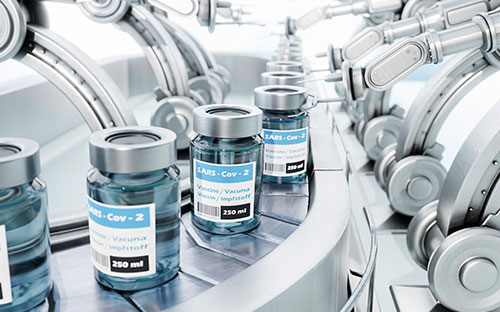
Amoxiclav
In the world of pharmaceuticals, maintaining product quality is of paramount importance. This is especially true for Amoxiclav production at your Pharmaceutical Plant. Moisture control is a critical factor in ensuring the integrity of our product.
Understanding the Problem:
Moisture can wreak havoc at every stage of Amoxiclav production. From raw material storage to the final packaging, controlling moisture levels is essential. Excessive moisture can lead to product degradation, clumping, and even contamination, which are all detrimental to our product's quality and safety. Our dedicated team has been diligently working to address these issues to ensure the production process runs smoothly.
Benefits of Moisture Control:
Implementing effective moisture control measures brings numerous advantages. First and foremost, it ensures the quality and safety of Amoxiclav, meeting regulatory standards. This leads to fewer production losses and reduces the risk of product recalls. Additionally, it enhances the shelf life of our product, saving costs and reducing waste. By controlling moisture, we can improve the overall efficiency of our production process.
Moisture control is a critical aspect of Amoxiclav production at our Pharmaceutical Plant. By addressing moisture-related issues, we can guarantee the consistency, safety, and efficacy of our product. We remain committed to maintaining the highest quality standards in pharmaceutical manufacturing, ensuring the satisfaction of our customers and the safety of our patients. Your concerns are our top priority, and we are here to deliver the best solutions for a better tomorrow.
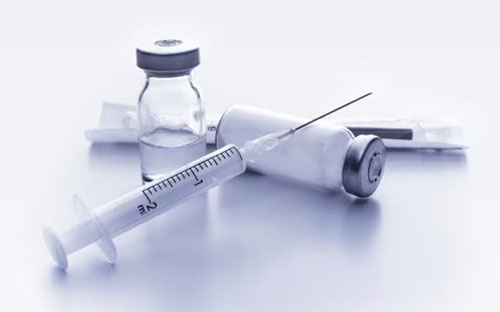
Dry Powder Injection
In the world of pharmaceuticals, moisture control plays a pivotal role in ensuring the quality and safety of tablets. The production of tablets in a Pharmaceutical Plant can be riddled with challenges, primarily stemming from moisture-related issues.
Understanding the Problem:
Failure in moisture control can lead to clumping of powders, rendering them unusable. Moreover, moisture can promote bacterial growth, compromising product safety. Inconsistent moisture levels also impact the flow and compressibility of powders, affecting product quality. These challenges can result in production delays and increased costs.
Benefits of Moisture Control:
Implementing effective moisture control measures is pivotal. Maintaining ideal moisture levels ensures uniform powder characteristics, enabling consistent product quality. This, in turn, reduces wastage and production downtime, saving both time and money. Proper moisture control also enhances product stability and shelf life, meeting regulatory standards.
In the world of pharmaceuticals, moisture control is more than just a technicality; it's a critical factor that affects your bottom line. By addressing moisture-related issues, you can ensure a smoother production process, higher product quality, and ultimately, a more successful operation at your Pharmaceutical Plant.
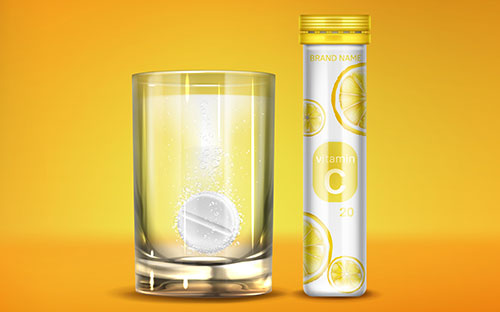
Effervescence Tablet
Moisture control is critical in the production of effervescence tablets at the Pharmaceutical Plant. Excess moisture can lead to significant issues, affecting the quality of the final product.
Understanding the Problem:
Moisture-related problems can occur at various stages of tablet production. During blending, excess moisture can lead to clumping, inconsistent distribution of active ingredients, and tablet defects. Moreover, in the compression process, moisture content affects tablet hardness and disintegration time. Poor moisture control can also result in microbial growth and shortened shelf life.
Benefits of Moisture Control:
Proper moisture control offers several advantages. Firstly, it ensures product consistency and quality, reducing the likelihood of defective tablets. Precise control enables pharmaceutical plants to meet regulatory standards and maintain their reputation. Moreover, it extends the shelf life of the effervescence tablets, reducing wastage and saving costs.
By investing in advanced moisture control technologies, you can enhance production efficiency and overall product quality. The use of moisture analyzers and drying equipment can significantly mitigate these issues.
In the world of pharmaceuticals, moisture control is not just a good practice; it's a necessity. Failure to address moisture-related problems can result in financial losses, regulatory non-compliance, and customer dissatisfaction. Pharmaceutical plants must prioritize moisture control to ensure the consistent, high-quality production of effervescence tablets at all times.
Freequently Ask Questions

01.How can excessive moisture affect drug production?
Excessive moisture can lead to product degradation, contamination, and reduced shelf life, impacting both quality and safety.
02.What are the common moisture-related problems in pharmaceutical plants?
Common issues include clumping of powdered ingredients, mold growth, and degradation of drug formulations.
03.How does a desiccant dehumidifier help in energy savings?
By efficiently removing moisture from the air, desiccant dehumidifiers reduce the load on air conditioning systems, leading to energy savings.
04.Can a desiccant dehumidifier be integrated into an existing pharmaceutical plant setup?
Yes, our products can be integrated into existing facilities with minimal disruption.
05.5. What is a desiccant dehumidifier, and how does it work? And what kind of maintenance is required in it?
• A desiccant dehumidifier is a device that removes moisture from the air using a desiccant material. It works by adsorbing moisture, making it an effective tool for humidity control.
• Regular filter replacement and routine inspections are typically all that's needed to keep the unit functioning optimally.
Some of our valuable clients
Initiate a Connection with Us
We Await Your Interaction
Kindly complete the form below, our team will promptly reach out to you.
Copyright © Rehoboth Enviro Systems. All Rights Reserved.


























